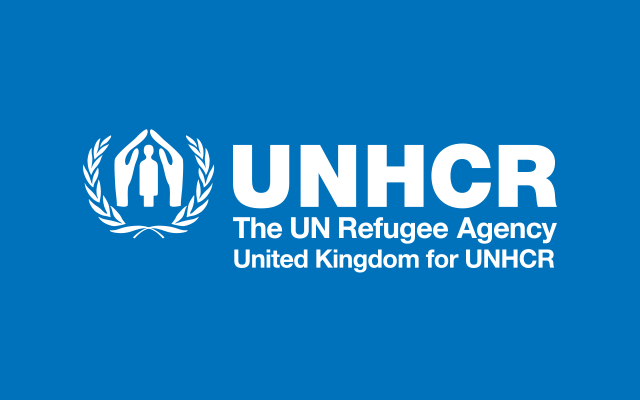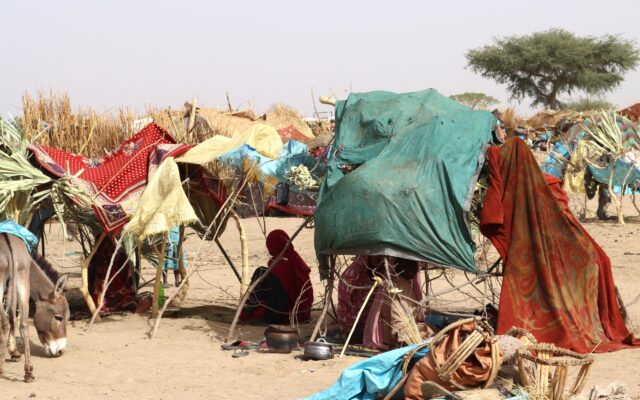“With no sign that peace is on the horizon for Sudan … the future remains uncertain for many who have fled”
Rebecca Curtis, Associate Protection Officer at UNHCR Egypt, on the ongoing situation in Sudan
31.07.23
© UNHCR
On 15 April 2023, armed conflict erupted between the Sudanese Armed Forces and the paramilitary Rapid Support Forces (RSF) in Khartoum, as well as several other parts of Sudan. Since then, over 255,000 people have fled to Egypt, seeking safety and security in the wake of violence and terror that many new arrivals never imagined they would experience.
I joined UNHCR Egypt just two months prior to the crisis, in the privileged position of Associate Protection Officer, a role sponsored by the island of Jersey as part of the Government’s Humanitarian Programme. Working in Protection, I have the honour of working face-to-face with new arrivals and being part of a dedicated team delivering frontline services and support to people who have been forcibly displaced from their homes in Sudan.
Each day I hear stories of great generosity and strength, from people who have travelled many days and weeks to seek safety, and about local and refugee communities that have opened their doors to new arrivals and welcomed them as family. However, the reality of the situation is stark for many people fleeing to Egypt.
Soaring costs and challenges accessing cash has led to people often arriving in desperate need of the most basic assistance, such as water and hygiene items, having exhausted everything in their efforts to escape Sudan. Having arrived in Egypt, those without community connections – and no residual funds – confront homelessness and are vulnerable to violence.
As part of UNHCR’s efforts to expand registration services during the crisis, at weekends I am now an honorary Registration Officer, part of the team interviewing those arriving from Sudan and registering them with UNHCR as asylum seekers and providing advice about available assistance.
On some days, between new arrivals and existing refugees, around 2,000 people visit the office, from unaccompanied children, who must now navigate life in a new country, to lawyers and entrepreneurs who spent years building businesses only to have them destroyed by the conflict. In these moments I have met people who have suffered or witnessed harrowing violence on their journeys to Egypt, students whose hopes of attending university have been thrown into chaos, and a woman who was separated from her husband and children in Sudan and is no longer able to communicate with them.
For Sara Kamel, a 38-year-old single mother with two young boys, Amin and Ayman, her decision to leave her beloved Sudan and take a perilous journey to Egypt was instant. The moment she heard about the kidnapping of her neighbour’s child by rebels, Sara took her children and fled with nothing, relying on money and support from others until she reached Greater Cairo in Egypt.
Once in Egypt, and like many new arrivals, she and her sons were hosted by a family from the Sudanese community. However, from the beginning this was only a temporary solution as the host family informed Sara that they would not be able to extend their hospitality beyond a month unless she contributed to the rent and daily expenses.
Less than a week after her arrival to Egypt, Sara approached UNHCR to register as an asylum-seeker in the hope of receiving much needed financial assistance that would help her rent a home. Through emergency cash assistance, Sara was able to move to a new place and buy basic clothing for her sons.
All Sara wants is to work to be able to pay rent, put food on the table and send her boys to school. However, without a consistent source of income, the question of how to pay rent at the end of the month remains.
For many like Sara, UNHCR and other organisations are a life-support in the midst of an uncertain future. With no sign that peace is on the horizon for Sudan, it is essential that long-term, sustainable, solutions are also prioritised to meet the widespread and urgent needs of both new arrivals and existing refugee communities in Egypt, such as Sara.
At UNHCR, we are working to expand access to psychosocial support and support new arrivals in accessing the housing, education, health, and livelihood opportunities necessary to survive in Egypt. Such services can be lifesaving for those who have fled the tragic conflict in Sudan and cannot be achieved without the continued support and solidarity of the international community. In addition, the provision of essential supplies at the border remains vital to ensure that those arriving from Sudan have the water, food, basic supplies, and medical assistance that they urgently need.
As we recently marked 100 days since the crisis began, the future remains uncertain for many who have fled Sudan. Hope is not easy in this context, where the need continues to be outweighed by the support and resources available.
However, the determination of those arriving in Egypt in the hope of safety and security, for themselves and their families, is a stark reminder that no one chooses to be a refugee and that it is all of our responsibility to stand in solidarity with the people of Sudan and enable local communities, organisations, Government bodies, and UN agencies to work together to build a better future for refugees in Egypt.
—
To read more about the situation in Sudan, please visit our website here.




